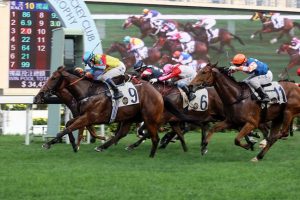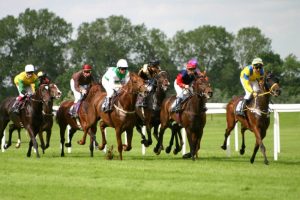 Yesterday, an administrative law judge ruled against thoroughbred trainers and breeders by supporting the decision of Florida gambling regulators, under which Calder Race Course would be able to keep its slot-machine operating license after knocking the grandstand down.
Yesterday, an administrative law judge ruled against thoroughbred trainers and breeders by supporting the decision of Florida gambling regulators, under which Calder Race Course would be able to keep its slot-machine operating license after knocking the grandstand down.
It was the Florida Horsemen’s Benevolent and Protective Association which filed the case against Florida’s Division of Pari-Mutuel Wagering. The law battle emphasized on the growing tension between the local racetrack operators and the horse and greyhound industries, as the operators have tried to bypass some state regulations in order to keep some more-profitable gambling options, such as slot machines and poker, as part of their offerings.
Under ongoing gambling legislation of the state of Florida, slot-machine gaming areas are required to share a common border with the live gaming facility and to be connected to it. Slots machines were added as part of Calder Race Course’s offering in 2010, and at the time the area where the machines were situated was connected to the live gaming facility. A few years later, in 2016, the grandstand was demolished, so a partially covered sidewalk was left to connect the live racing area to the slots area.
Calder Race Course on Sunday. Photographs by Louie Dula. pic.twitter.com/sQ1mMQ6Mki
— Barbara Livingston (@DRFLivingston) April 19, 2016
According to the court’s ruling, Florida regulators were well aware of Calder Race Course’s plans to bring some changes to the track and demolish the grandstand, although it did not seek official permission from the state to knock it down.
Calder Race Course Did Not Violated Florida Gambling Legislation, Says Judge
 The slot-machine operating license of Miami Gardens Casino was renewed in 2017 by local regulators. The state horsemen’s association filed the complaint after the Calder’s grandstand was demolished. As noted above, the areas where slot machines are situated must share a common border with the live gaming facility.
The slot-machine operating license of Miami Gardens Casino was renewed in 2017 by local regulators. The state horsemen’s association filed the complaint after the Calder’s grandstand was demolished. As noted above, the areas where slot machines are situated must share a common border with the live gaming facility.
Calder Race Course’s lawyers, on the other hand, accused the horsemen’s association of trying to forcibly make the track build a new stadium in spite of the massive decline in horse betting which eventually resulted with the destruction of the facility two years ago.
According to the complaint issued by the Florida Horsemen’s Benevolent and Protective Association, the renewal of the slot-machine operating license owned by Calder Race Course after the demolition of the grandstand, is an “unadopted rule” which contradicts to the current gambling legislation of the state. In other words, the horsemen’s association pushes for slot players to be able to view live races, assuming that such an opportunity would raise the chances of gamblers wagering on horse races, too.
As explained by the horsemen’s legal representative Bradford Beilly during a court hearing in May, the demolition of the grandstand resulted in a considerable change brought to the configuration of the track. Now, the Administrative Law Judge Lawrence P. Stevenson ruled that Florida regulators had not violated any gambling legislation when allowing the track to continue offering slot machines under its existing operating license, in spite of the modifications brought to the track and the grandstand.

















